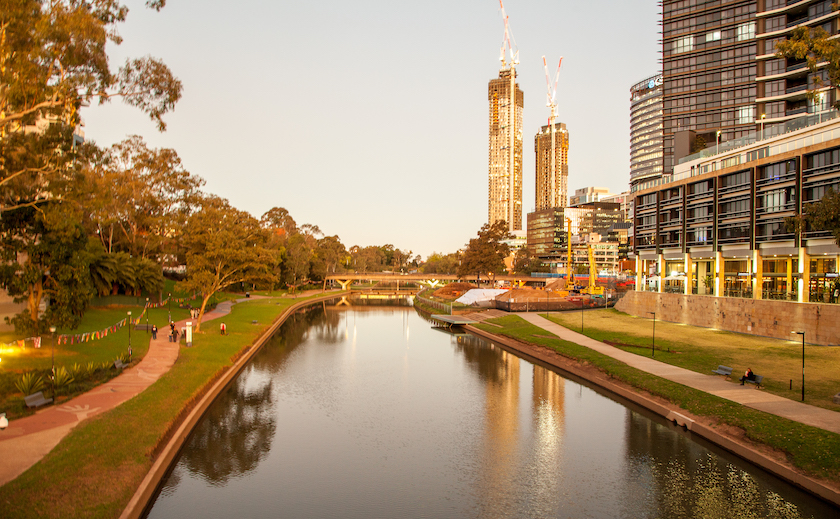Public ideas
Cities or the bush?

Parramatta early evening
There is an age-old but ever-changing tension between urban and non-urban regions. In Europe and the US that tension is manifest in electoral patterns: cities tend to be more progressive and liberal, but not necessarily “left” in the traditional sense, while rural regions are more conservative, and can provide refuges for the far right. In Australia that tension is also played out in electoral politics, most notably in the Liberal Party’s loss of support in our cities.
Another issue in Australia is the strange phenomenon of two-thirds of the population in a huge land mass being crowded in five large cities, with attendant problems of high housing prices and over-stressed infrastructure. For a long time there has been nearly political unity on the desirability of decentralization, but we never quite get there, even though communication technologies have weakened the tyranny of distance.
Two articles may prod policymakers to think a little more about spatial policy.
The journal Social Europe records a conversation with urban geographer Ash Amin, of Cambridge University (UK), titled Global cities: crucibles of innovation, the first of a series on global cities. For the most part his views, extolling the benefits of urbanization, are in line with those of most urbanists, but he makes the important point that simply crowding a lot of people together in one space does not guarantee that these benefits will be realized. He writes:
If this [urbanization] takes place in an environment of shared urban commons, where there are no wars over access to the means of flourishing—well-kitted out public space, liveable neighbourhoods, various infrastructures of education, credit and connectivity—then this civility of indifference to difference offers the possibility of plural and diffuse forms of innovation.
From the perspective of non-urban regions there is a Conversation article by Saleena Ham of the University of Queensland: Why do small rural communities often shun newcomers, even when they need them? We generally regard social solidarity in a small community as a positive quality, but it can manifest as a rejection of the outsider:
The locals undermine, censure and attack, in overt or subtle ways, newcomers who are seeking to belong and contribute until they become disillusioned or just withdraw. Businesses fail and people leave. The small community stays the same, familiar and declining, and the locals are happy because they were proved right about the newcomers.
That’s a dismal perspective, and it certainly doesn’t describe all rural communities. For example Biloela in rural Queensland, has been in the news over recent years because it has been so welcoming to the Murugappan family, and there are many stories of other country towns welcoming refugees. But perhaps we miss the other communities – the ones we drive through as quickly as possible because we don’t like their vibes.
How “Christians” give Christianity a bad name
In a post on Easter Monday Ross Gittins wrote In politics and the economy, Christianity is increasingly suspect.
It’s a reminder to people of all religious conviction, or of no religious conviction, that the political stances of those who profess to hold and defend “Christian” values are often at variance with the generous and inclusive concept of Christianity held by many, including Gittins himself, who don’t mount the bully pulpit to condemn people’s personal behaviour.